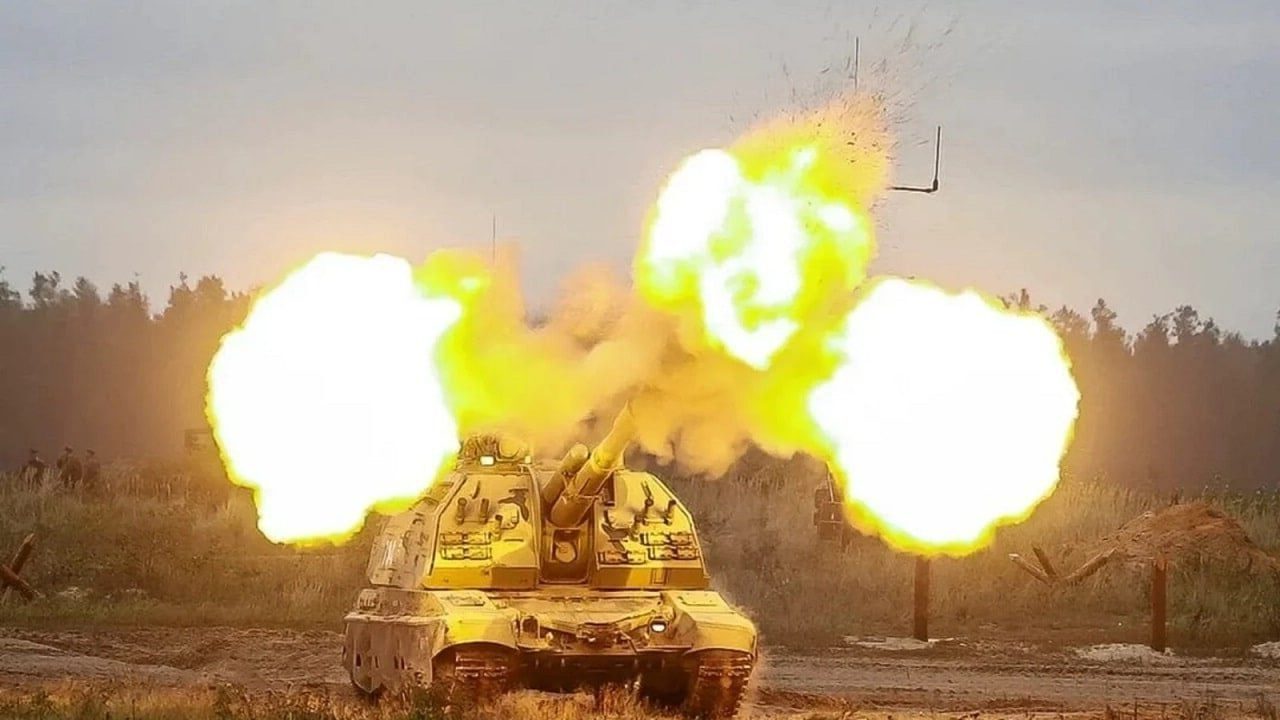While the war in Ukraine drags into its fourth month, Western Europe, which was united with the United States in sanctioning Russia over its invasion, is showing signs of losing that support for Kyiv, which is exactly what the Putin regime in Moscow was expecting.
French President Emmanuel Macron, German Chancellor Olaf Scholz, and Italian Prime Minister Mario Draghi traveled to Kyiv, ostensibly as a show of support but the three leaders are under pressure from their electorates over the rising inflation caused by the war. Many western Europeans want a negotiated settlement between Ukraine and Russia, which could include Kyiv ceding territory in eastern Ukraine to Russia.
On Wednesday, Macron said that Ukrainian President Volodymyr Zelensky and his government will have to negotiate with Russia at some point. “At some point, when we will have done our maximum to help resist, when, I wish it, Ukraine will have won and the firing will cease, we will have to negotiate,” Macron said. “The president of Ukraine and its leaders will have to negotiate with Russia, and we Europeans will be around that table.”
However, in Romania, before he visited Kyiv, Macron called for a tougher stance on Russia.
“We will do everything to stop Russia’s war forces, to help the Ukrainians and their army, and continue to negotiate,” Macron said to French and NATO troops at a military base on Wednesday in Romania.
The Ukrainians have been critical of France and Germany for their equivocal support of Ukraine against Russian aggression. While the U.S., UK, and eastern Europe are staunchly behind the principle that only Ukraine can decide what exactly constitutes a workable peace treaty with Russia, Macron has been sending mixed signals.
Zelensky has been critical of France and Germany, as the Germans’ promise of heavier weapons, which Ukraine desperately needs, still hasn’t arrived. Macron, on the other hand, has been criticized by Kyiv for stating that the West mustn’t humiliate Putin in an attempt to negotiate a peace settlement.
“We must not humiliate Russia so that the day when the fighting stops we can build an exit ramp through diplomatic means,” Macron said in an interview with French news. “I am convinced that it is France’s role to be a mediating power.”
Ukrainian foreign minister, Dmytro Kuleba responded to Macron’s comments by stating, “Calls to avoid the humiliation of Russia can only humiliate France and every other country that would call for it,” he said, adding that Russia needed to be “put in its place.”
Kuleba’s comments and the notion that Ukraine should cede territory to appease Putin harkens back to a dangerous precedent.
“Peace in Our Time” Was One of the Causes of WWII
The situation in Ukraine is similar, but not exactly like the same situation in which Europe found itself in 1938. Nazi Germany had the aim of expanding its territory. Hitler was claiming that the Sudetenland area of Czechoslovakia was historically part of Germany.
In an effort to avoid conflict with Germany, France and the UK negotiated with Hitler and Benito Mussolini in Munich – which the Czech government was neither invited nor part of the negotiation. The Sudetenland was ceded to Germany and UK Prime Minister Neville Chamberlain returned to London waving the peace agreement and telling the English people that he had achieved “peace with honor. I believe it is peace for our time.”
Winston Churchill excoriated Chamberlain stating, “You were given the choice between war and dishonor. You chose dishonor and you will have war.” Churchill’s assessment was correct. The following spring, German troops overran the remainder of Czechoslovakia and in September 1939, Germany invaded Poland, and WWII in Europe had begun.
This strategy of appeasement was repeated by former U.S. Secretary of State Henry Kissinger. He stated at the World Economic Forum in Davos, Switzerland last month that Russia and Ukraine need to negotiate and that Ukraine must cede territory to appease Putin and Russia.
Ukrainian President Zelensky called out Kissinger personally, commenting on his escape from the Nazis as a teenager. “By the way, in the real year 1938, when Mr. Kissinger’s family was fleeing Nazi Germany, he was 15 years old, and he understood everything perfectly. And nobody heard from him then that it was necessary to adapt to the Nazis instead of fleeing them or fighting them,” Zelensky said.
U.S. To Send an Additional $1 Billion in Aid to Ukraine
With the Ukrainians pleading for more weapons and ammunition, President Biden announced on Wednesday that the United States was sending an additional $1 billion worth of aid to Kyiv.
The Pentagon said that the U.S. is sending $350 million worth of weapons to Ukraine including:
- Eighteen 155 mm M777 howitzers
- 36,000 rounds of 155 mm ammunition
- Eighteen tactical vehicles to tow 155 mm howitzers
- High Mobility Artillery Rocket Systems, or HMARS ammunition
- Four tactical vehicles to recover equipment and spare parts
The U.S. is also sending $650 million worth of aid consisting of two Harpoon coastal defense systems, thousands of secure radios, night vision, and thermal devices as well as training and maintenance support funding.
“I certainly understand where the Ukrainians are coming from, and we’re gonna fight hard to give them everything they need,” Defense Secretary Lloyd Austin said.
“If they use the weapon properly and it’s employed properly, they ought to be able to take out a significant amount of targets and that will make a difference,” Joint Cheifs Chairman General Mark Milley added.
Steve Balestrieri is a 1945 National Security Columnist. He has served as a US Army Special Forces NCO and Warrant Officer before injuries forced his early separation. In addition to writing for 19fortyfive.com and other military news organizations, he has covered the NFL for PatsFans.com for over 10 years. His work was regularly featured in the Millbury-Sutton Chronicle and Grafton News newspapers in Massachusetts.

